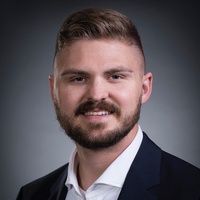The journey from McDonald’s crew member to owning 18 franchise locations reveals profound insights into successful business ownership and wealth building. Mark, a veteran who served in Iraq, shares his remarkable path from humble beginnings to becoming a multi-unit franchise owner, highlighting that success requires both strategic planning and personal discipline.
Perhaps the most striking revelation from Mark’s experience is how performance measurement directly impacts business success. “When performance is measured, performance improves. When performance is measured, the rate of improvement accelerates,” he explains. This principle became painfully clear when, despite achieving his highest revenue year ever, his McDonald’s franchises operated at a significant loss due to improper cost management during inflationary periods. He had increased prices only 2-5% while costs surged 20-30%, forcing him to borrow money just to keep the doors open. This experience fundamentally changed how he monitored key metrics like gross margin and flow-through.
The financial realities of franchise ownership are sobering. For McDonald’s specifically, prospective owners need approximately $500,000 liquid cash for the 25% equity requirement, plus additional capital for operating expenses. Mark recommends maintaining at least one month’s revenue (roughly $250,000-$500,000) as a cash buffer for each location. McDonald’s requires franchisees to maintain a cashflow coverage ratio of 1.2:1, meaning earnings must exceed debt obligations by at least 20%. These stringent financial requirements ensure franchisees can weather unexpected challenges like construction projects blocking access or sudden economic downturns.
Beyond capital requirements, Mark emphasizes the critical importance of understanding the operational side of franchising. Many investors mistakenly view franchises as passive income generators, failing to recognize the intense people management required. “Obviously, it is people. The people is the greatest answer in running any business well,” he states. “But that doesn’t mean they just appear out of thin air and it doesn’t mean that they’re not expensive. You have to invest in them, both on an emotional, a personal, and a financial side.”
For aspiring franchise owners, Mark offers practical advice: work in your target franchise for at least 18 months before investing. This provides invaluable operational knowledge while learning on someone else’s dime. It also helps determine whether you can genuinely be passionate about the product and business model. He cautions against trendy new franchises that haven’t weathered economic cycles, preferring established brands with proven resilience through both growth periods and downturns.
The conversation extends beyond franchising to broader principles of wealth building and personal finance. Mark advocates for regular personal financial statements to measure progress, explaining that without clear measurement, it’s impossible to know if you’re truly creating success. He structures his approach around value sets (or vision), goals to achieve that vision, and daily routines to accomplish those goals. This framework applies equally to business leadership, family life, and personal finance.
